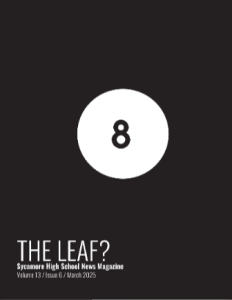Powerful message released from controversial dress
A follow-up image was also released the same day, with a different woman covering her face in makeup. The copy stated, “Because they cover it with white and gold. Majority of women who are abused never report it. If you are in need of, or know someone who needs help, contact us on 011 718 6475.”
March 12, 2015
“Why is it so hard to see black and blue?”
This was the same question asked by much of the country when the photo of #TheDress went viral at the end of February, sparking controversy over its color. Yes, that same dress is back once more.
This time, there is a more prominent message.
The South African branch of the Salvation Army tweeted that same question in a domestic violence public servfice announcement produced by the creative agency Ireland/Davenport on Fri., March 6. It was under #StopAbuseAgainstWomen.
It featured an image of a battered woman covered in bruises and wearing a white and gold version of the famous dress with a headline that read, “Why is it so hard to see black and blue?”
The copy added, “The only illusion is if you think it was her choice. One in 6 women are victims of abuse. Stop abuse against women.”
“We wanted to take advantage of the hype of the meme to spread awareness for something important,” Ireland/Davenport creative director Wihan Meerhloz told ABC News.
“Our creative team brainstormed ways to send a greater message about overlooked abuse against women using the dress.”
This powerful campaign’s release coincided with International Women’s Day on March 8. This same day also marked the release of the Domestic Violence Disclosure Scheme, also known as Clare’s Law, in Britain.
The law gives people the right to ask the police if their partner has a record of abuse. The law is named after the murder of Clare Wood by her ex-boyfriend George Appleton, who had a history of violence against women, in 2009.
“This innovative and powerful campaign by The Salvation Army in South Africa highlights that domestic violence is often overlooked by society,” a Salvation Army spokesperson said at a press conference, according to Huffington Post.
“We hope this image helps people to see the true impact of this crime.”
According to the Salvation Army’s website, more than 16 million people had seen the ad within a few hours of its publication.
“I hope that the word will spread. There are so many people that just look the other way in an abuse situation. In my eyes, they are just as bad as the abuser,” freshman Shruti Mishra said.
In the space of just one hour, the picture went viral on Twitter, with over 3,000 tweets expressing different views on the message behind the dress.
“Wow. Turned that one around. Powerful re-use of social media,” director, editor, and producer Erik Naso tweeted.
“Brilliant campaign. Let’s hope it helps stop abuse blindness,” journalist Julie Posetti tweeted.
The charity was encouraged by the sheer number of people that appeared passionate about fighting the abuse of women.
“Everybody on the Internet, thank you for retweeting, resending and sharing this strong message. Let’s keep on going!” Meerhloz said.







